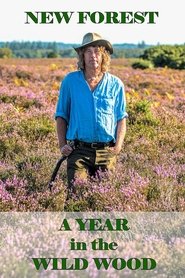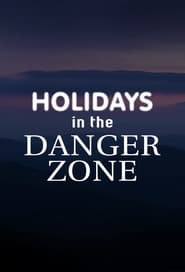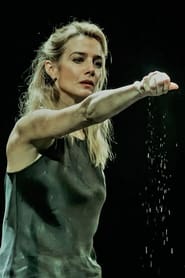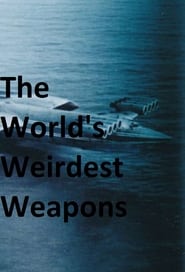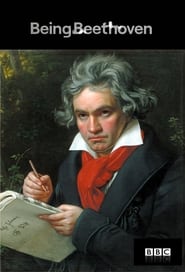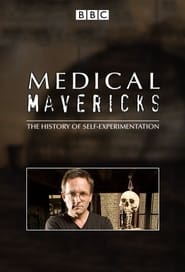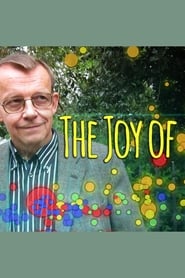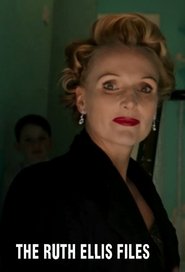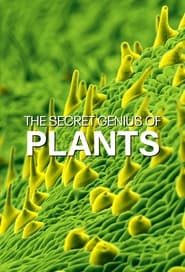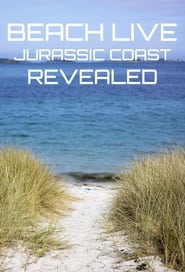Bbc Four TV Series - Page 18
-
New Forest: A Year in the Wild Wood
2019
Writer and environmentalist, Peter Owen-Jones spends a year in the enchanting landscapes of the New Forest, exploring its wildlife, history and meeting the Commoners, the people whose ancient way of life has helped shape the land since Neolithic times. -
Prejudice and Pride: The People's History of LGBTQ Britain
2017
star 0.8Stephen K. Amos and Susan Calman present a unique series in which LGBTQ people from across the UK talk about the objects that helped to define their lives over the past 50 years. -
My New Best Friend
2008
My New Best Friend
2008
Three-part documentary series about the importance and nature of friendship among children, told from their point of view. Shot over eight months and told entirely from their perspective, it is an intimate and moving insight into how children think and feel as they journey into a new world. -
Power to the People
2015
Power to the People
2015
Observational documentary series following life at one of Britain's 'Big Six' energy companies, SSE. Filmed over a year, it tells the story of an army of workers battling to keep our power flowing. -
Revolution and Romance: Musical Masters of the 19th Century
2016
In this series Suzy Klein examines how music transformed throughout the 19th century. The host discusses the political history and the industrial revolution of the era, exploring how this influenced the music industry. With the weakened rank of Europe's aristocracy, after the French Revolution, the middle classes emerged and thrived in their entrepreneurial pursuits -
Holidays in the Danger Zone
2003
Holidays in the Danger Zone is a series of documentaries, originally broadcast on BBC Four in the UK. They have also been shown on BBC Two and exported to other countries, including Canada. The series of travelogues see the presenters visit countries which are far off the beaten track. ⁕Holidays in the Axis of Evil was first to be broadcast. It was presented by Ben Anderson and included visits to North Korea, Iraq, Iran, Syria, Libya and Cuba - the countries named by George W. Bush, the US president, as members of an "Axis of Evil". ⁕America Was Here takes Anderson to countries where the US either intervened in conflicts or fought wars at some point in recent history. They include Cambodia, El Salvador, Honduras, Nicaragua, Panama and Vietnam. ⁕The Violent Coast includes visits to one of the most dangerous parts of the world, on the western tip of Africa, as Anderson travels through Côte d'Ivoire, Benin, Nigeria, Liberia and Sierra Leone. ⁕Rivers takes a slightly different approac -
Soul America
2020
Soul America
2020
A three-part docuseries chronicling the journey of soul music, from its birth out of gospel and R&B in the 1960s, when it delivered an assertive, integrated vision of black America, and produced its first generation of stars including Otis Redding and Aretha Franklin. -
Handmade on the Silk Road
2016
Three traditional crafts along the ancient trade route of the Silk Road. -
Art of Eternity
2007
Art of Eternity
2007
How should art depict the relationship between man and God? How can art best express eternal values? Can you, and should you, portray the face of Christ? For over a thousand years these were some of the questions which taxed the minds of the greatest artists of the early West. In this three-part series, art historian Andrew Graham-Dixon sets out to unravel the mysteries of the art of the pre-perspective era. Why has this world been so frequently misunderstood and underrated? His journey takes him from the mysterious catacombs of ancient Rome to Coptic Egypt, to the Orthodox Christian world of Istanbul and then onwards to medieval Italy and France. This programme was first broadcast on BBC Four in 2007, and later repeated on BBC Two. -
Lights Up
2021
Lights Up
2021
A virtual theatre festival staged in lockdown. Household names join groundbreaking new talent - pushing the boundaries of what theatre can be when there is no audience in the room. -
The National Trust
2003
The National Trust
2003
Documentary series lifting the lid on the National Trust, filmed over two of the most stressful years in its more than 100-year-old life. The properties presented include Studland Beach & Nature Reserve, John Lennon's boyhood home, Tyntesfield, Waddesdon Manor, and Stonehenge. -
The World's Weirdest Weapons
2013
These unorthodox military innovations were not developed by chance, each was constructed to solve a tactical or strategic problem, such as overcoming Nazi defences on D-Day, mounting a surprise attack over water, or safely moving an agent back and forth across enemy lines. The US smart bomb piloted by live pigeons, a jet pack used by flying soldiers, an incendiary bombing program that used bats released from aircraft, and a giant Catherine Wheel are all covered in this fascinating series. World’s Weirdest Weapons explores never before seen weapons and introduces viewers to the extraordinary people that invented these ingenious devices. -
Nightmare in the City That Never Sleeps
0000
Today New York is America's greatest city. But 30 years ago this summer, they couldn't even keep the lights on. A blackout plunged seven million people into darkness. Then the nightmare began. Anarchy exploded on the streets: thousands of shops were looted, whole neighbourhoods were burned, it seemed the civilisation of the city had come to an end. -
Being Beethoven
2020
Being Beethoven
2020
Marking the 250th anniversary of Beethoven's birth in 1770, a documentary series that focuses on the real, complex and often difficult man behind the great composer. -
Medical Mavericks
2008
Medical Mavericks
2008
Dr Michael Mosley explores how pioneering doctors laid the foundations of modern medicine. -
The Joy Of...
2012
The Joy Of...
2012
A witty and stimulating look at Chance, Logic, Data and Statistics and the roles they play in our lives. -
Heist
0000
Heist
0000
Heist is a one-off 2008 television comedy-drama, written by Peter Harness and directed by Justin Hardy. It was completed at the end of 2006 and first broadcast on 23 April 2008 on BBC Four as part of its Medieval season. Loosely based on real events surrounding Richard of Pudlicott, it is a parody of and/or homage to heist films, set in medieval England, using several of that genre's conventions, and trailed under the same tagline as the 2003 remake of The Italian Job. As per the medieval setting, the film dialogue contains several Middle English and pseudo-Middle English expressions and insults. Marshall as lead character narrates several parts of the backstory to the audience during the film. -
The Ruth Ellis Files: A Very British Crime Story
2018
star 1In 1955 Ruth Ellis was the last woman hanged in Britain for the murder of her lover. In this investigative three-part series film-maker Gillian Pachter re-examines the case. -
The Secret Genius of Plants
2024
star 8Series that follows recent scientific developments as researchers across Europe explore the extraordinary capabilities of plants. -
Beach Live: Jurassic Coast Revealed
2018
Dan Snow and wildlife experts Lucy Cooke and Niall Strawson uncover historical, geological and wildlife treasures live from the Jurassic Coast in Dorset.
